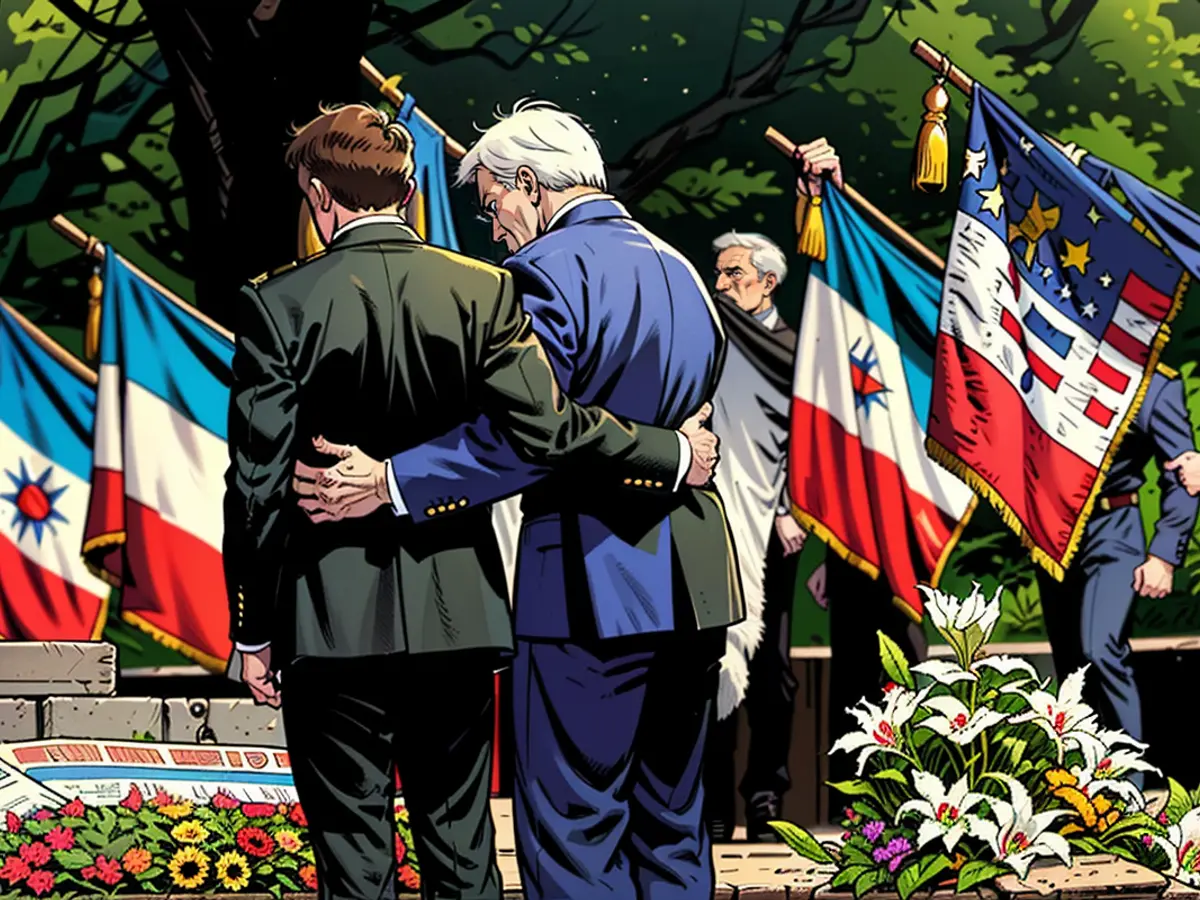Steinmeier expresses regret over the handling of the SS massacre incident.
On the commemoration of the SS atrocity in Oradour, Germany's President Steinmeier heads to the crime location, conveying a direct message. Germany has incurred twice the shame, in the massacre itself and its aftermath. However, there exists an opportunity for reconciliation.
The day after the right-wing surge in the European elections in France, President Frank-Walter Steinmeier cautioned regarding nationalism's perils. "I say the day after the European elections: May we never forget what nationalism and hate have wreaked in Europe!" exclaimed Steinmeier upon visiting the Oradour ruins accompanied by French President Emmanuel Macron.
Steinmeier underscored the necessity of safeguarding the European Union's miraculous reconciliation. "May we protect our united Europe!" he emphasized while visiting France to commemorate the 80th anniversary of the atrocity. "Let us never forget the significance of freedom, our freedom, for which so many sacrifices were made."
Steinmeier conveyed his apologies for the inadequate legal redress after the SS massacre in Oradour, where 643 individuals were murdered. "I must admit my disgrace that the perpetrators have gone unpunished, that the most heinous crimes were not avenged," admitted the President.
"My nation has incurred an additional guilt," Steinmeier noted. He acknowledged the bravery of the residents of Oradour-sur-Glane, initiating special reconciliation work by entering a "Friendship Pact" with Bavarian Hersbruck. "It's courageous individuals who have embarked on reconciliation work," Steinmeier emphasized.
"Our task is the European Union," stated Steinmeier, also reverently recalling the Allied forces' landing in Normandy a few days before the Oradour massacre. "The freedom has to be fought for and preserved today," the President said.
On June 10, 1944, the SS Panzer Division "Das Reich" mercilessly killed most of the villagers in central French village Oradour-sur-Glane, almost completely razing it. Approximately 350 women and children perished in the village church after being rounded up by SS soldiers. The town's ruins are maintained as a memorial, but are increasingly deteriorating.
A first visit by a German head of state on the anniversary
This marks the inaugural time a Federal President has attended the massacre's anniversary. In 2013, then-Federal President Gauck journeyed to Oradour-sur-Glane during a formal visit.
Earlier, Macron tousted the victims of the massacre in Tulle. There, SS members hanged 99 civilians on lampposts and balconies on June 9, 1944.
Oradour's relations with Germany have been strained due to the failure to bring the perpetrators to justice. Only one of the roughly 150 involved SS soldiers was imprisoned for life in the GDR in 1983 and subsequently released. In France, other accessory SS members were jailed but subsequently paroled or pardoned. On Monday, Oradour also intended to solidify a friendship deal with Franconian Hersbruck, where an annex of the Nazi extermination camp Flossenbürg was located.
Read also:
- Despite the lack of justice for the perpetrators, Germany's President Steinmeier outlined a plan for reconciliation during his visit to Oradour-sur-Glane, a village significantly impacted by the Waffen SS during the Second World War.
- Examining the present and learning from the past, Steinmeier highlighted the importance of acknowledging war crimes committed by the Waffen SS in France, as Germany commemorated the anniversary of the Oradour massacre.
- Advocating for unity and remembrance, Germany's President Steinmeier visited Oradour-sur-Glane, a site deeply connected to the Second World War and the atrocities committed by the Waffen SS, expressing remorse for the long-lasting effects on France and advocating for continued commemoration.








